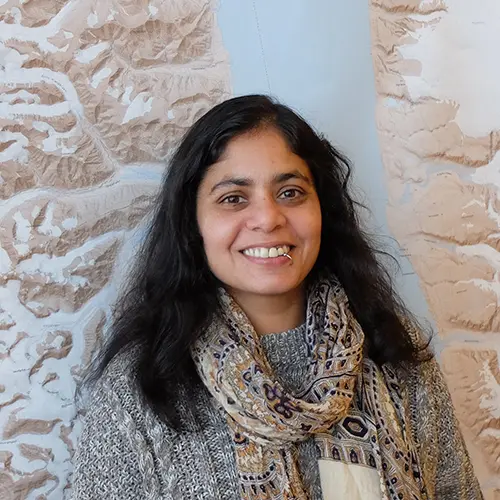AB-202 Marine Arctic Biology (15 ECTS)
ID:
AB-202
CREDITS:
15 ECTS
APPLICATION DEADLINE:
October 01, 2024
START DATE:
January 08, 2025
END DATE:
June 06, 2025
COURSE PERIOD:
Spring semester. Teaching block 1-3

| Grade: | Letter grade (A through F) |
| Course Cost: | Fieldwork/cruise: Ca. NOK 1000–1200 (5–6 days x NOK 200 per overnight stay) |
| Course Capacity Min/Max: | 10/20 students |
| Language of instruction: | English |
| Examination support material: | Bilingual dictionary between English and mother tongue |
Course requirements:
60 ECTS within general natural sciences, of which 30 ECTS within the field of biology. The applicant must be enrolled in a programme at Bachelor level, or document that the course is approved into the applicant’s current study programme.
The course can only be combined with AB-203 Arctic Environmental Management and the two courses are designed to complement each other.
Academic content:
This course provides a solid introduction to Arctic marine ecosystems and covers the entire food web from small protists to marine mammals. The course consists of a mixture of lectures, seminars, laboratory exercises and field work. The students will get familiar with the most common protists, macroalgae, invertebrates, fish, sea birds and marine mammals living in the Barents Sea-Svalbard region and learn the main methods for sampling them.
The curriculum consists of a mixture of book chapters and scientific papers. The students will get the privilege of collecting their own data during a 1-week cruise with a larger research vessel. Here the students will get hands-on experience with standard marine sampling techniques within hydrography, primary producers, zooplankton, benthos, and fish. Collected samples will be integrated within a larger, annual dataset which the students will use for conducting a small research project on a topic of their own choice. UNIS is rewarded to be a Center of Excellence in Biological education (www.bioceed.no) for its active research-based education.
Learning outcomes:
Upon completing the course, the students will be able to / have competences in:
Knowledge
- identify the most common marine species in Svalbard
- determine the main trophic interactions in Arctic marine food webs
- discuss how abiotic and biotic factors impact on population and community level.
Skills
- identify the most common species of the Arctic marine flora and fauna
- sample, process and analyse marine ecological data
- communicate analysed results orally and written to the scientific community.
General competences
- teamwork, including leading and organizing group work
- problem solving
- conducting outdoor work and activities under sometimes demanding Arctic conditions
- standard marine sampling techniques.
Learning activities:
Learning activities:
The course extends over a full semester. Initially, students attend one week of compulsory Arctic survival and safety training (AS-101). The first part of the semester will focus on theory and lectures, with some small field activities.
Later in the semester, students will collect and analyse their own samples during a 5-6 days research cruise and also design their own little research project, combining their data with previous years’ data which they will make a poster presentation of (see assignments). AB-202 therefore provides valuable training and preparation for later master and PhD thesis work, and popular skills for applying for technician and research assistant positions within marine sciences.
Summary
- Total lecture hours: 30 hours
- Total seminar hours: 25 hours
- Laboratory exercises: 5-8 days
- Field cruise: 5–6 days
- Excursion: 1 day
Compulsory learning activities:
- Practical field excursion (1 day)
- Student research cruise (5–6 days)
- Laboratory exercises
- Written technical reports from these activities.
All compulsory learning activities must be approved in order to sit the exam.
Assessment:
All assessments must be passed in order to pass the course.
Each assessment is graded, and subsequently combined into a single grade. Partial grades for each assessment will be available.
| Method | Duration | Percentage of final grade |
|---|---|---|
| Poster presentation | 30 % | |
| Practical exam | 3 hours | 20 % |
| Written exam | 3 hours | 50 % |
Student life


